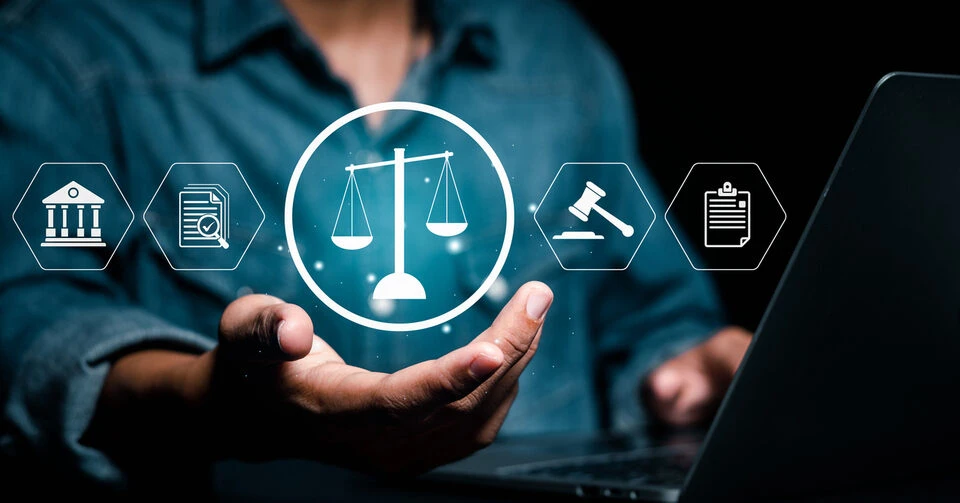
Case Overview
A new federal lawsuit accuses Apple and Google of knowingly enabling sweepstakes casino apps that violate gambling laws. The companies are alleged to have distributed the apps, handled user payments, and even taken a share of the profits, through their app stores and backend infrastructure.
Filed under the Racketeer Influenced and Corrupt Organizations (RICO) Act, the lawsuit argues that Apple and Google didn’t just look the other way, they actively supported and profited from casino-style apps that aren’t legally authorized in many states. (Yes, the same law that is often associated with mob bosses, and more recently, rappers like Young Thug.)
The case, Bargo et al. v. Pratt et al., was filed as a class action on behalf of users across the U.S. who spent money in sweepstakes casino apps found in the Apple App Store or Google Play. The plaintiffs claim these apps wouldn’t have gained the same traction, or generated as much revenue, without Apple and Google providing the tools to distribute and monetize them.
This is the third lawsuit from lead plaintiffs Julio Bargo and Lamar Prater, now joined by Rebecca Platt. Previous versions named the casino apps themselves, but this time the focus is squarely on the tech platforms. The suit describes Apple and Google as key players in what it calls a “Sweepstakes Casino Enterprise.”
What the Lawsuit Alleges
According to the complaint, Apple and Google weren’t just letting sweepstakes casino apps onto their platforms, they were deeply involved in how those apps made money and found users.
The lawsuit outlines four main allegations:
- Hosting and distributing illegal sweepstakes casino apps;
- Taking a cut of in-app purchases through proprietary payment systems;
- Processing payments between players and unlicensed gambling platforms;
- Using targeted advertising and data analytics to increase user engagement and spending.
The suit claims both companies provided sweepstakes developers with marketing tools, user behavior insights, and promotional visibility, allowing them to attract and retain high-spending users. In their view, this isn’t passive hosting; it’s active participation in what they argue is an illegal gambling model.
An Enterprise Built on Data and Payments
The lawsuit describes the relationship between the platforms and the app developers as more than just business as usual. By processing payments and taking a share of the revenue, Apple and Google aren’t just supporting the system, they’re part of the system. And that is why it works so well.
That’s the basis for what the complaint calls the “Sweepstakes Casino Enterprise”, which is a setup where the success of these apps depends on the platforms’ tools, and the platforms profit every time a user spends. In the plaintiffs’ view, that kind of shared interest crosses a legal line, violating both state gambling laws and federal racketeering statutes.
Targeting the Players Behind the Apps
Unlike earlier cases, which tried to hold the casino apps themselves accountable, this lawsuit leaves the game developers out of it entirely. Now, the plaintiffs are skipping the middlemen and going straight to the source: Apple and Google, framing them not as neutral platforms, but as the real drivers of the sweepstakes casino model.
It marks a notable shift in legal strategy. Earlier lawsuits focused on the casino apps themselves, but those efforts stalled, and ended up getting either dismissed or dropped before making it far. This time, the plaintiffs are focusing solely on the platforms behind the scenes: the companies that distribute the apps, process payments, and help them grow. They argue that targeting Apple and Google directly gives the case a stronger foundation.
The plaintiffs also point to the steady flow of in-app purchases as proof that Apple and Google aren’t just hosting these apps, they’re benefiting from them. They argue that the companies have built long-term revenue streams around repeat spending, giving them every reason to keep the model alive.
Predatory Targeting Allegations
The lawsuit also claims that Apple and Google aren’t just helping these apps operate, they’re also helping them optimize how much users spend. According to the complaint, both companies collect detailed data on how players interact with sweepstakes casinos: how long they play, how often they return, and, most importantly, how much they spend.
That data is then shared with developers or used to fine-tune ads and app store recommendations. The goal is to identify users who spend the most, and keep them engaged. The suit argues this creates a kind of feedback loop: the more someone plays, the more data is collected, and the more precisely they’re targeted with offers and prompts designed to keep them spending.
The concern is that this model hits hardest for the most vulnerable users; those prone to compulsive spending or those who struggle to walk away. The complaint stops short of saying Apple and Google are running the gambling operations themselves, but it paints them as key players in a system designed to keep players locked in. Whether that crosses the legal line into racketeering remains up to the courts, but for the plaintiffs, it’s central to their case.
A Test Case for Platform Liability?
The plaintiffs are asking the court to approve the case as a class action and award financial restitution to users who spent money in sweepstakes casino apps downloaded through Apple or Google. Similar lawsuits have been filed before and gone nowhere, but this version is narrower in scope, with a sharper focus on the platforms’ role rather than the games themselves.
It also comes at a time when regulators are starting to look beyond the apps and toward the companies that help keep them running, so this also helps their case. In New York, lawmakers recently introduced a bill that would hold payment processors, platform providers, and even affiliates accountable for working with unlicensed sweepstakes casinos. It’s one of the clearest signs yet that the pressure is spreading, and that companies behind the scenes may no longer be out of reach.
If the case moves forward, Apple and Google could find themselves at the center of a broader conversation about who’s responsible for what gets monetized in the digital economy, and what happens when that economy collides with gambling law.

Blaise Luis

